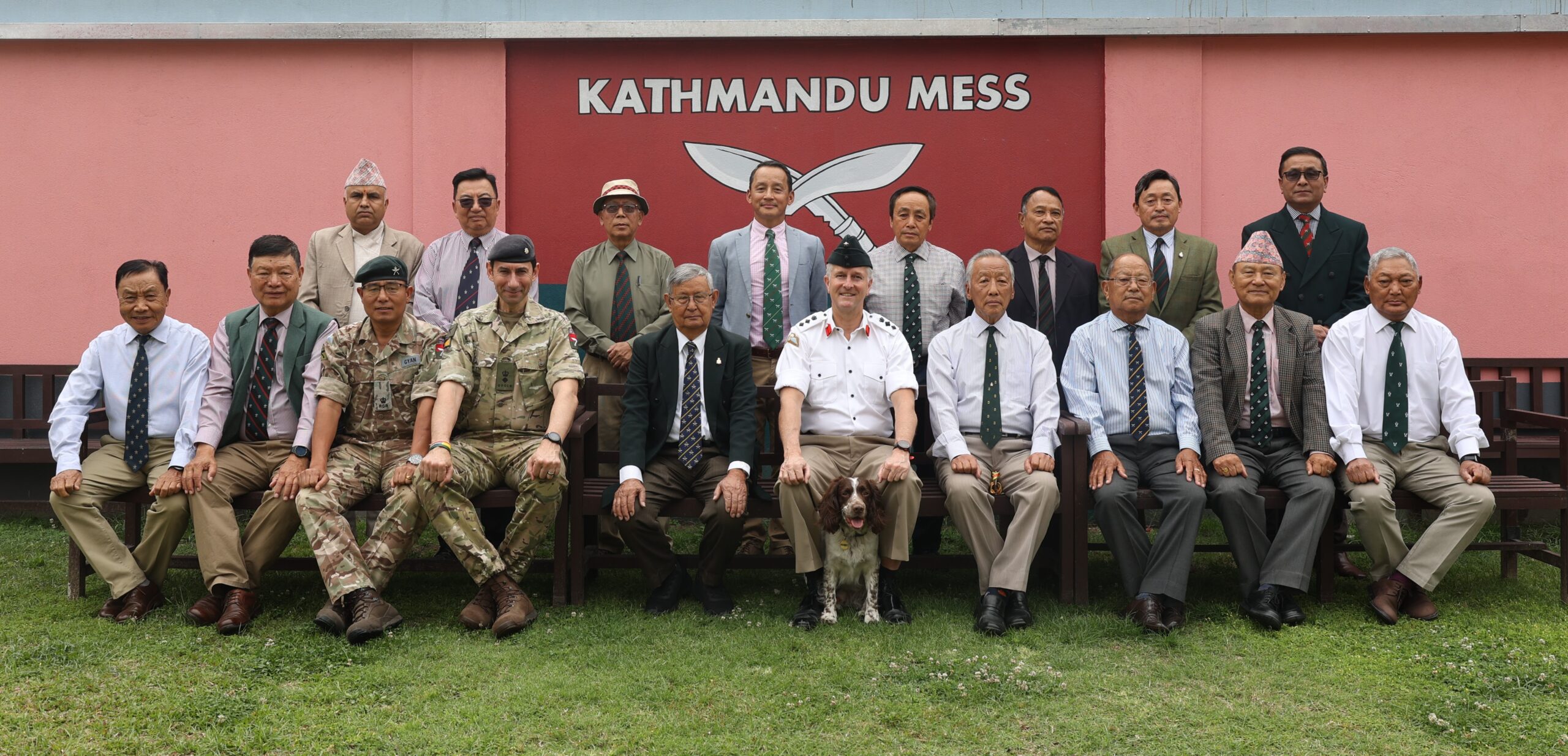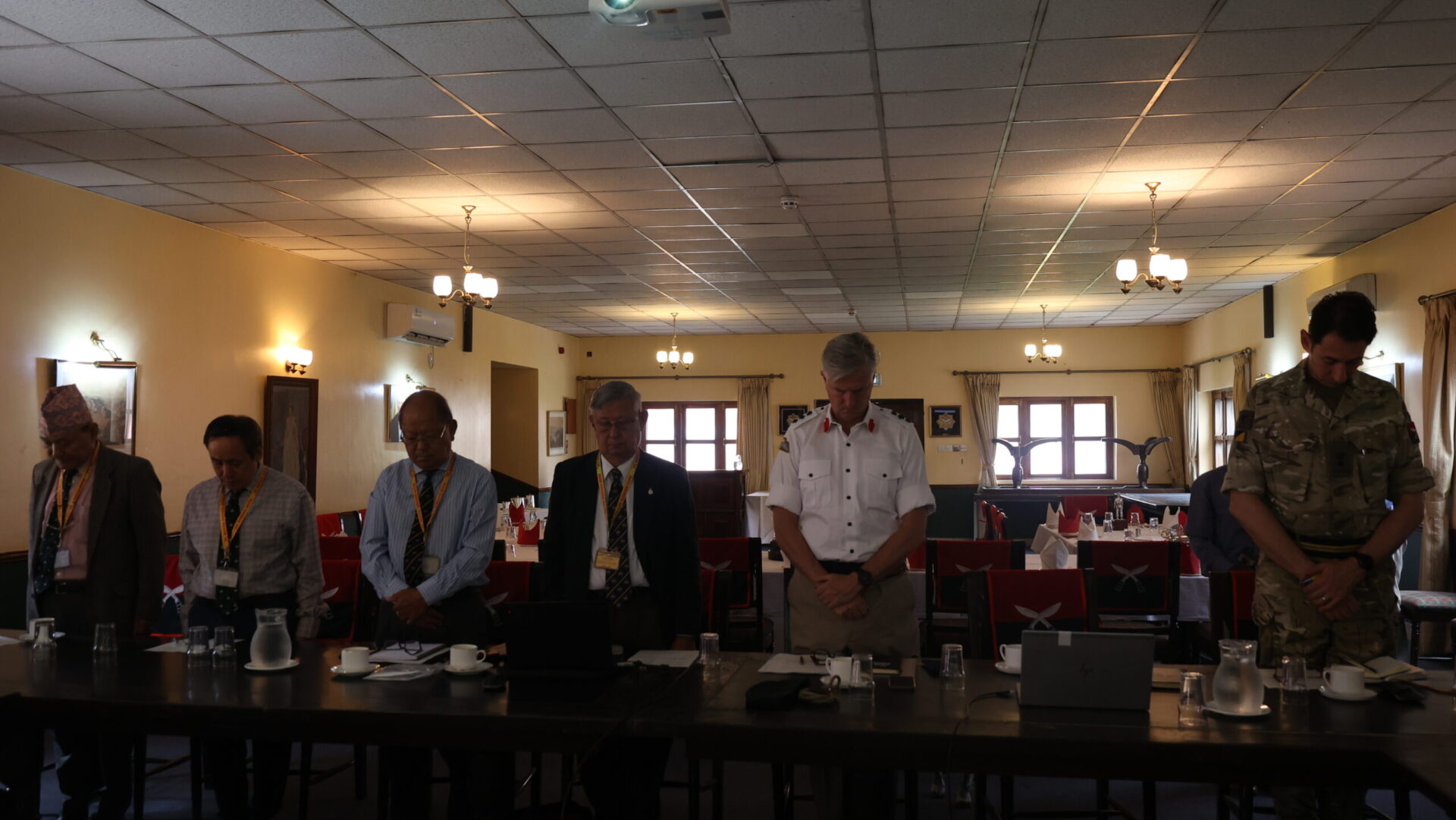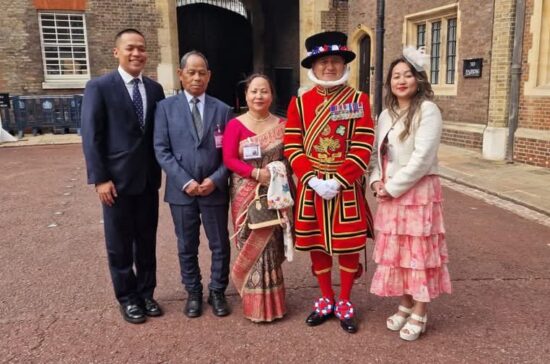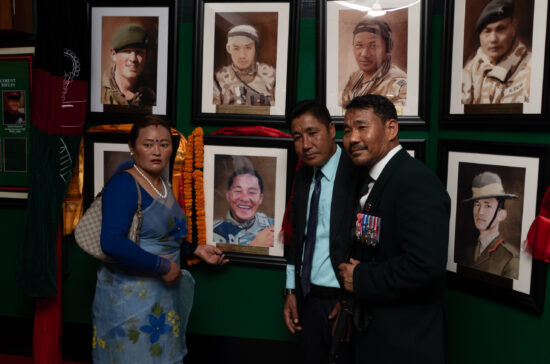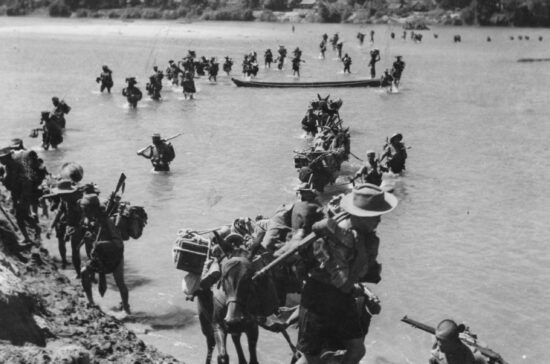It is with deepest sadness that we announce the sudden passing away of the incumbent President of the Regimental Associations Nepal (RAN) in the early hours of 27 January 2025 at Norvic Hospital in Kathmandu. He was 89 years old. His funeral was performed the same day at home in rich Buddhist customs, attended by the Commander, senior British Gurkha Nepal staff and regimental association chairmen, with cremation taking place at Pashupati.
His distinguished and inimitable service record is as follows. He joined the Brigade of Gurkhas on 10 November 1951 as the Brigade’s first intake with army number 21131847. After basic recruit training in Malaya, he joined the 50 Field Engineer Regiment which became the Gurkha Engineers in 1955 and the Queen’s Gurkha Engineers (QGE) in 1977. Initially trained as Plant Operator he was then heavily engaged in the Malayan Emergency.
During the Borneo Confrontation (1963 – 66), he was continually deployed for engineering tasks deep into border areas. Because of his outstanding calibre, professionalism and dedication, he rose swiftly through the ranks.
In 1974, he was appointed Queen’s Gurkha Orderly Officer at Buckingham Palace, for which he was awarded the Member of the Victorian Order (MVO). He served as the eighth Gurkha Major of his regiment from 1975 to 1978 and again as Gurkha Major for the Training Depot, Brigade of Gurkhas (1978–1981).
Upon retirement in 1981, he joined the Gurkha Contingent, Singapore Police, as its Adjutant, serving until 1993. Eventually, Bhimbahadur Saheb returned to Nepal in the challenging time of its political change, which led him deeply into many social and veteran’s welfare activities. In 2003 he assumed the role of Chairman RAN, an organization which he had helped establish in 1999. At the time he was Chairman QGE Association. He led RAN with remarkable diplomacy during a challenging period of changes in the terms and conditions of service for the Gurkhas. Apparently, unbeknown to the authorities, his gentle persuasion, vast experience, and empathy were instrumental in easing tensions among veterans, particularly for those excluded from the new TACOS benefits. He was a truly remarkable leader whose unwavering selfless dedication and immense contributions to the RAN will resonate for years to come among the veterans. In his leadership RAN tried to have many issues addressed.
The closest issue to heart to him was to secure UK settlement visa approval for the soldiers made redundant, immediately after the Borneo operations, before their initial contracts were complete. He will be profoundly missed in Nepal, throughout the Brigade of Gurkhas, and by the many rural communities in western Nepal, where he devotedly implemented numerous projects during his appointment as Community Service Director/Service Project Community Chair of the Rotary Club of the Himalayan Gurkhas, established in 2003 by the veterans.
He is survived by his devoted wife, Mrs. Rakshyakumari in Kathmandu, and their three children: Raju, Rajen, and Renu. He hailed from a village in Kaski District, belonging to a family with a proud military tradition. Jai Bhim Saheb.
